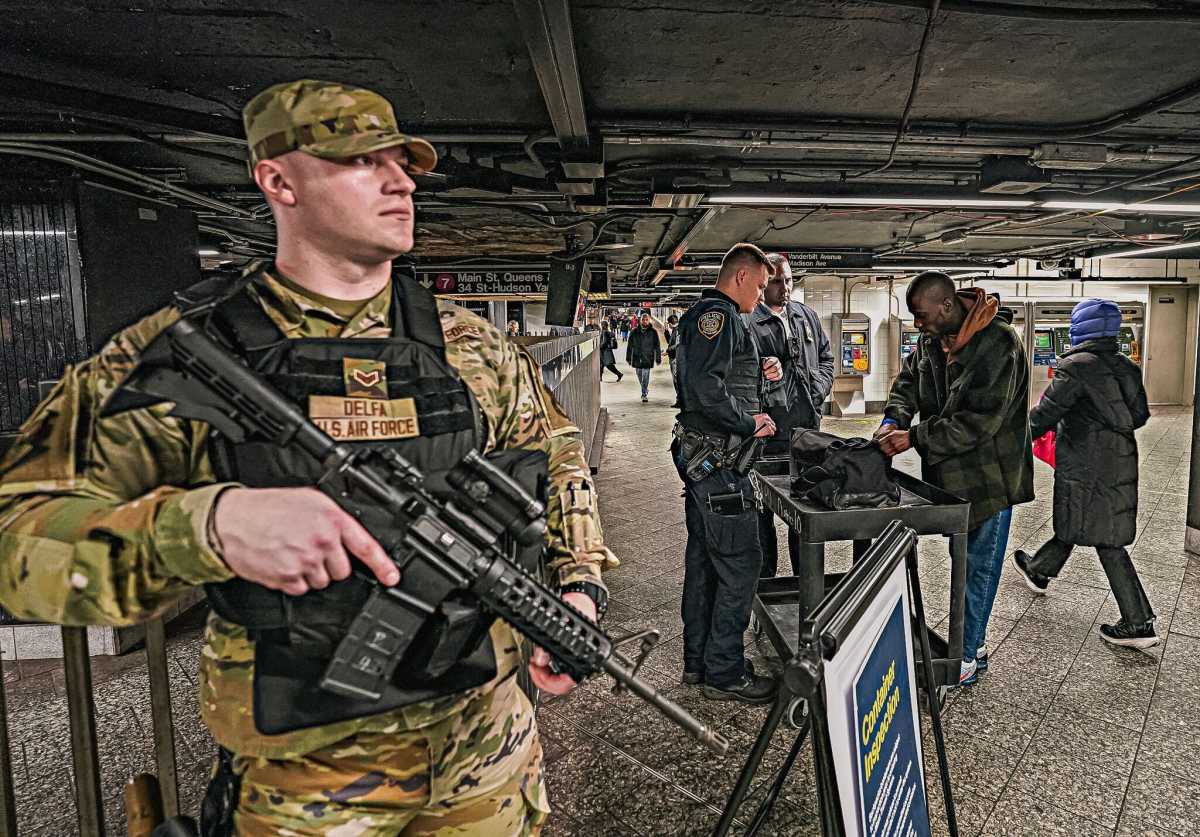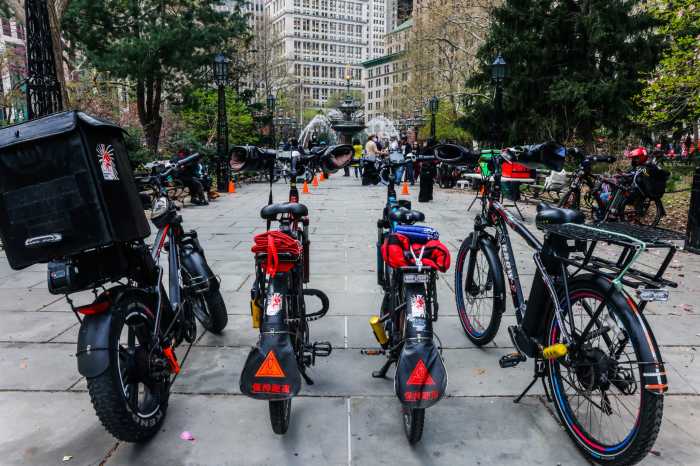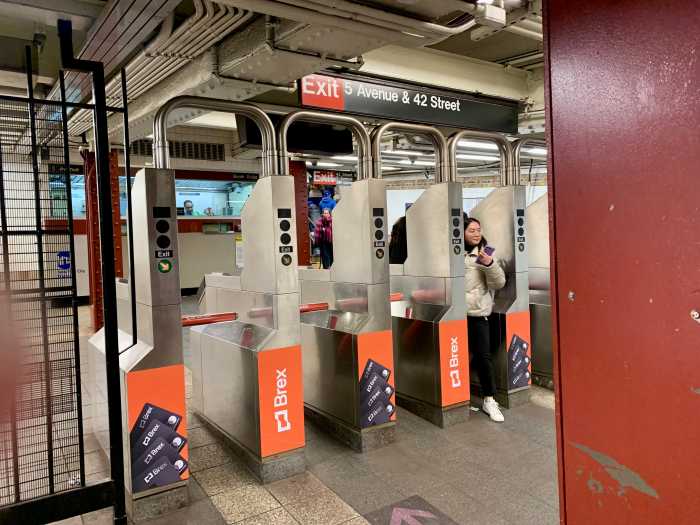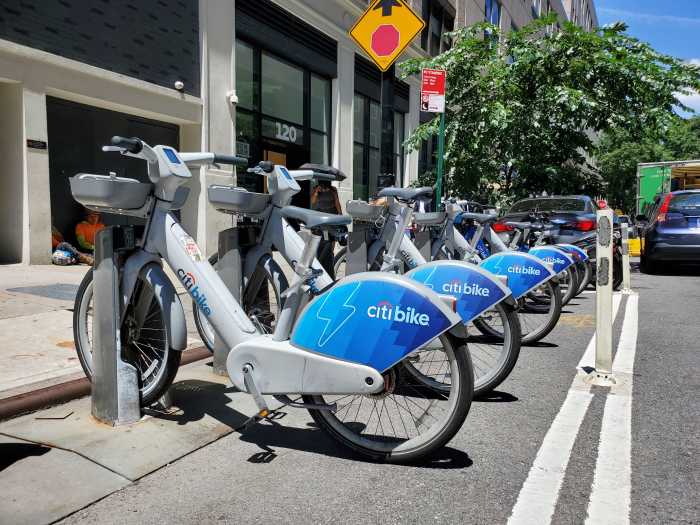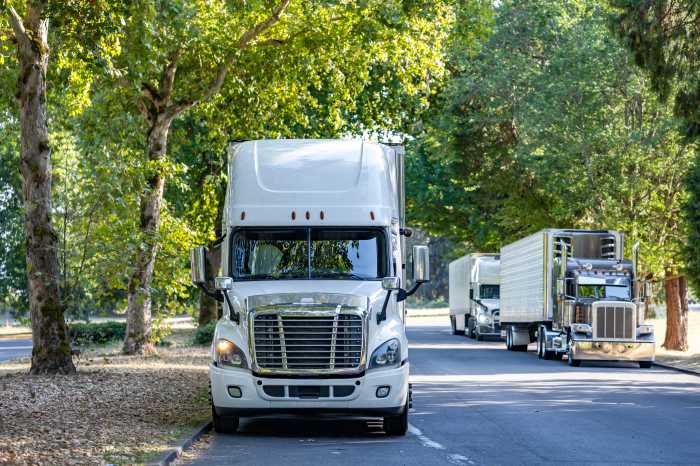The National Guard soldiers checking the bags of subway straphangers are no longer carrying long guns on duty, a spokesperson for Gov. Kathy Hochul has confirmed.
The spokesperson told amNewYork Metro that “immediately” following the deployment of military soldiers to the subway system last week, the governor opted to direct the New York National Guard to stop carrying assault rifles while checking bags.
Soldiers in the subway under the long-running Joint Task Force Empire Shield are only authorized to patrol the bag check stations, so no National Guard will be carrying long guns in the subway going forward — though they’ll still carry them at transit hubs like Grand Central and Penn Station as they did before.
The spokesperson did not immediately divulge a reason for the decision, which was first reported by the Daily News. But widely disseminated images of soldiers carrying assault rifles in the system seemed to do little to quell straphangers’ safety fears within the system, eliciting a tepid reaction from riders and political blowback from both sides of the aisle and even top NYPD brass.
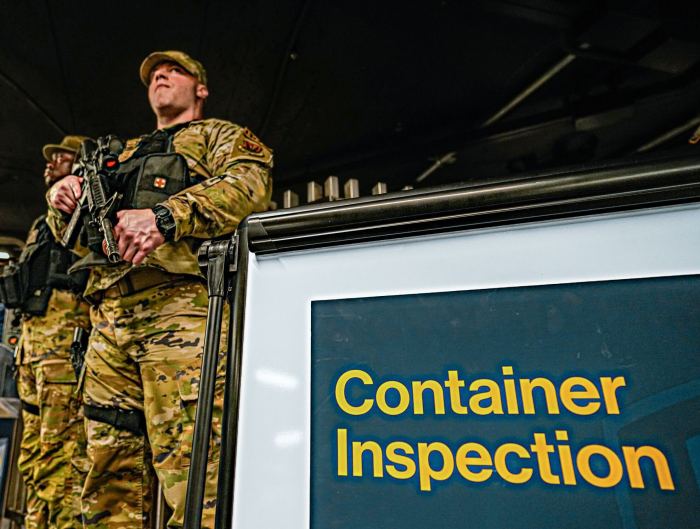
On Wednesday, the governor ordered 750 National Guard troops and 250 members of the State Police and MTA Police to assist the NYPD in patrolling the subway system, and to perform beefed-up bag checks at busy transit hubs. That came amid a 13% spike in major crimes in the subway system in 2024 compared to the same period in 2023 and a series of high-profile murders in the system which also led Mayor Eric Adams to deploy an additional 1,000 cops to subway patrols.
Soldiers with big guns are nothing new in New York’s transit system, having long patrolled transport hubs like Grand Central Terminal, Penn Station, the Port Authority Bus Terminal, and the region’s airports. Heavily-armed police have also periodically patrolled the system since 9/11, and cops have been able to check bags since a deadly 2005 terrorist attack in London’s transit system.
But now, the soldiers’ presence in the subway system left many riders uneasy.
“I feel like it is unnecessary,” straphanger Dejuan Sullivan told amNewYork Metro. “We have got plenty of police here and I feel like that is overkill.”
The deployment has also apparently not stopped the regular ebb and flow of crime underground. On Saturday, for example, a man shoved a woman into the path of an oncoming train at Fulton Street in Manhattan in an apparent act of domestic violence, causing her to lose her feet.
The governor has stated in media appearances that the National Guard is intended to have a “psychological” impact, both to deter would-be criminals and give riders a sense of security. She also denied that the bag checks were akin to a renewed stop-and-frisk, as some critics have charged.
“They’re just really there to be a deterrent. So, people who maybe want to do something harmful to others would know that there’s people around,” Hochul said on WBLS radio Sunday. “They’re not doing stop and search. They’re not doing that whatsoever. And so, I want to just make sure that people know the intent of this is to keep people safe and change the psychology of fear around the subways and get back to some sense of normalcy.”
But critics say the decision was not based on the actual prevalence of crime in the system, which is quite rare in comparison to crime in the rest of the city.
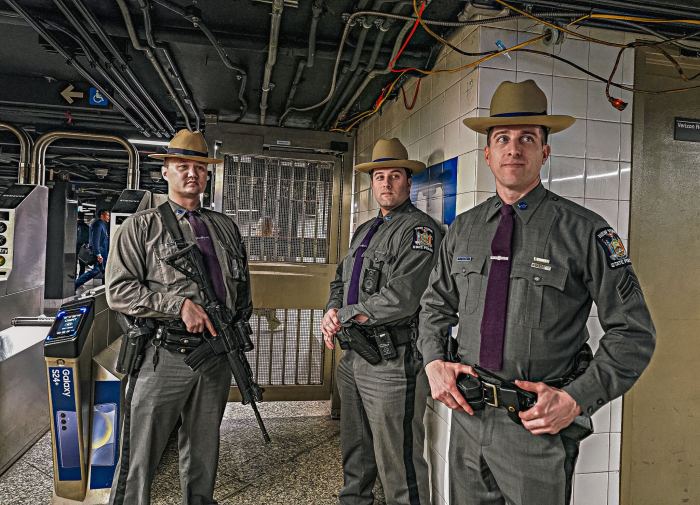
“While it is certainly a relief that the National Guard’s long rifles will not be present underground, treating our subway system like a war zone remains an unnecessary overreaction based on fear, not facts,” said Donna Lieberman, executive director of the New York Civil Liberties Union. “Deploying military personnel to the subways will not make New Yorkers feel safe; it will, unfortunately, create a perfect storm for tension, escalation, and further criminalization of Black and Brown New Yorkers.”
Three people have been murdered in the subway system so far this year, compared to 53 across the city as of March 3, according to NYPD statistics.
Riders are protected under the Fourth Amendment and can refuse a bag search if prompted by soldiers, though they will not be permitted to enter the subway if they do so. However, that doesn’t necessarily preclude them from going to another entrance or another station.
Additional reporting by Dean Moses
Read More: NFL Draft 2024: Jets Select Olu Fashanu, Penn State at No. 11



